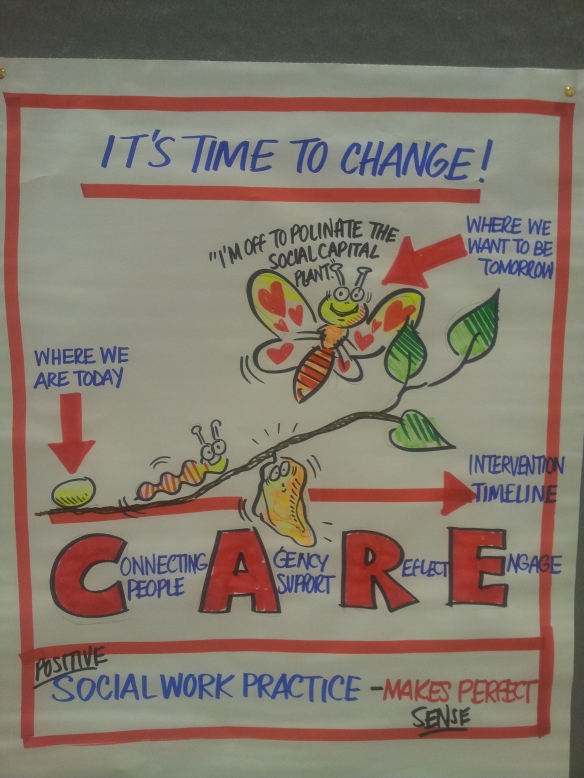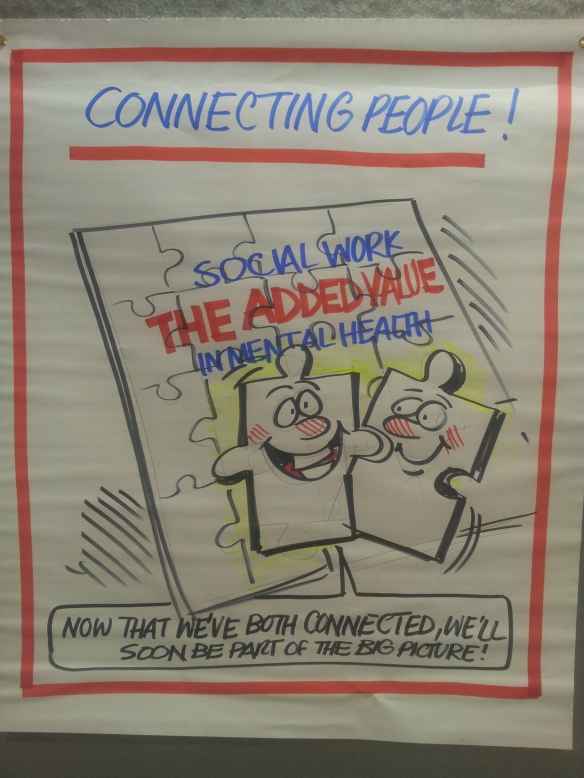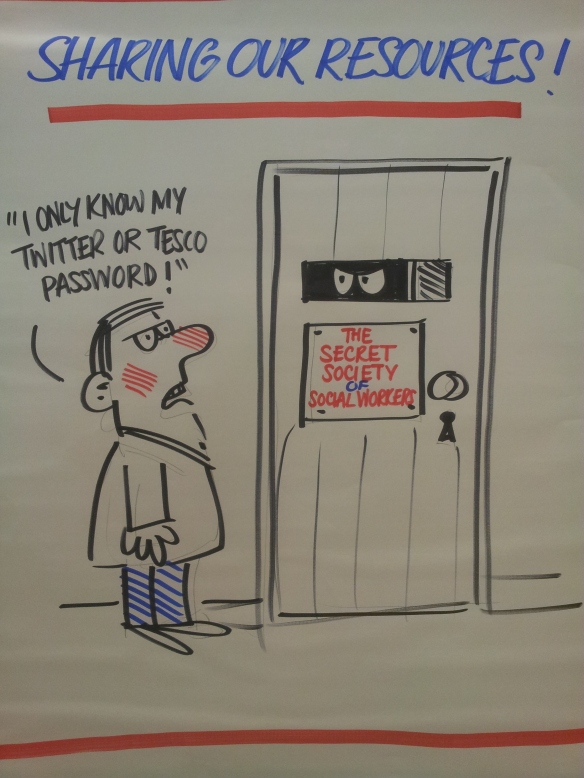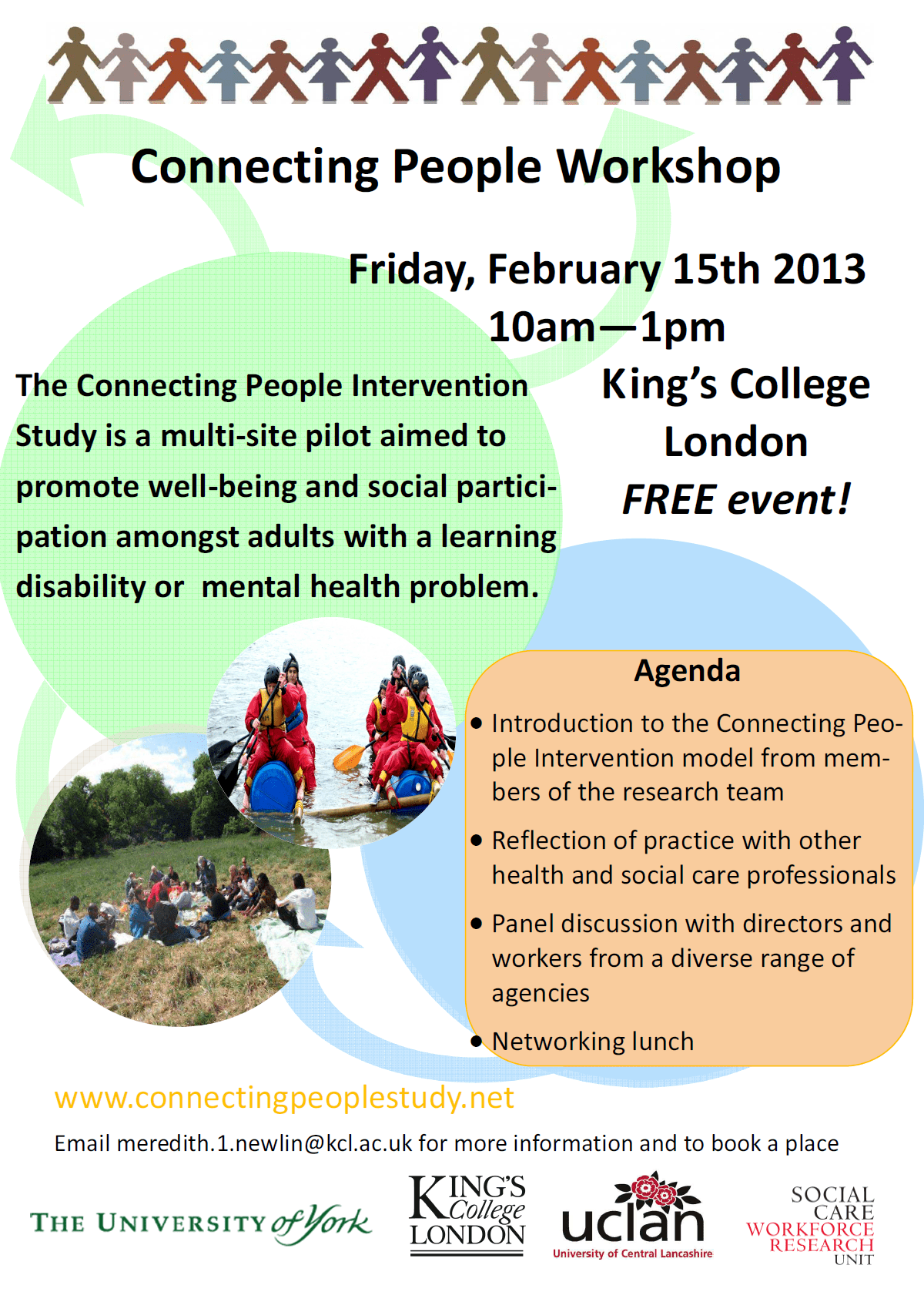Social connections are important to most of us. We need people around us to share our lives with – the blossoming of online social network sites in the last decade is visible evidence of this.
When people experience mental health difficulties they frequently also experience a shrinking in their networks. People ebb away due to the stigma of mental health difficulties and individuals’ own problems in maintaining their social connections.
Mental health social workers have an important role to play in supporting people experiencing mental health problems to maintain their social connections. On 27th February, Making Research Count are organising a seminar in York for social workers and social care workers to discuss and engage with three research projects which explore the role of workers in enhancing the networks of people with mental health problems:
- The Connecting People study has developed and is piloting an intervention model for mental health services to help people to enhance their social connections. It is funded by the NIHR School for Social Care Research.
- The Community Health Networks study has mapped the networks of people with severe mental illness to explore the importance of people, places and activities in supporting recovery and investigate the (potential) role of primary care and secondary mental health services in community network maintenance and development. It is funded by the NIHR Health Services and Delivery Research programme.
- Connected Communities is an action research programme that explores social network approaches to social and economic challenges and opportunities. It focuses on understanding, mapping and mobilising networks of support and co-producing action with local communities in a way that takes into account what is already there. It is funded by the Big Lottery.
The seminar will provide practitioners with an opportunity to engage with the emerging findings of these studies and to reflect on what they mean for social work and social care practice with people with mental health problems.
A final plenary session will be chaired by Dr Ruth Allen, Director of Social Work at South West London and St George’s Mental Health NHS Trust and Chair of the Faculty of Mental Health at the College of Social Work, which will explore the implications of these studies for mental health practice.
Practitioners will take away intervention models they can use in their practice to help individuals engage with their networks or communities. They will have an enhanced understanding about the role of communities and networks in an individual’s life and how they can assist recovery. Community and asset-mapping techniques will be discussed to provide practitioners with tools they can use in their practice.






![20130323_071951[1]](https://connectingpeoplestudy.net/wp-content/uploads/2013/03/20130323_0719511.jpg?w=584&h=438)



